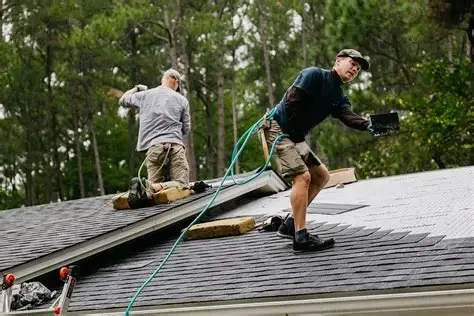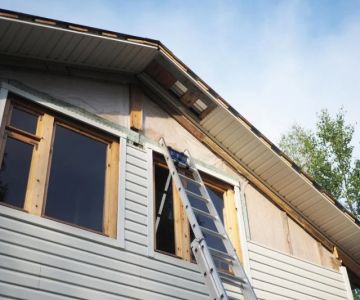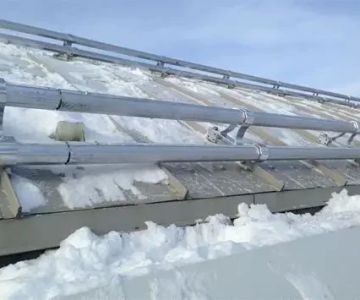
- 1 - Understanding Roof Replacement Costs
- 2 - Setting Your Budget for Roof Replacement
- 3 - Key Factors Affecting Roof Replacement Cost
- 4 - How to Save Money on Roof Replacement
- 5 - Real-Life Examples and Tips from Homeowners
- 6 - Finding the Right Roofing Contractor for Your Budget
1. Understanding Roof Replacement Costs
Replacing a roof is a significant investment, but it is essential to ensure the safety and longevity of your home. Understanding the various costs involved can help you make an informed decision. A roof replacement project typically includes materials, labor, removal of the old roof, and disposal fees. Additionally, if structural issues are discovered during the replacement process, it may incur additional costs. Being prepared for these expenses can prevent any financial surprises. For accurate quotes, many homeowners rely on platforms like Total Roofing Hub to find trusted roofing contractors near them.

Quality Roofing Services
Rancho Palos VerdesLos Angeles CountyCalifornia
28300 S Western Ave #28386, Rancho Palos Verdes, CA 90275, USA
2. Setting Your Budget for Roof Replacement
Before embarking on a roof replacement, it is crucial to set a realistic budget. Roof replacement costs can vary widely depending on factors such as roof size, material choice, and your location. Homeowners should consider whether to replace the entire roof or just a portion of it and factor in potential hidden costs like repairs to the underlying structure. It’s also important to budget for permits and any additional services that might be necessary. Setting a clear budget helps prevent overspending and allows you to prioritize essential tasks during the process.

Buccos Roofing
TarentumAllegheny CountyPennsylvania
590 Pittsburgh Mills Cir Suite T107, Tarentum, PA 15084, USA
3. Key Factors Affecting Roof Replacement Cost
The cost of replacing a roof can depend on several factors, including:
- Roof size: Larger roofs will naturally cost more to replace due to the increased materials and labor required.
- Material choices: The type of roofing material you choose (asphalt shingles, metal, slate, etc.) significantly impacts the cost. Premium materials like slate or metal often come with a higher price tag.
- Labor costs: Labor rates vary based on location and the experience of the roofing contractor.
- Roof complexity: If your roof has multiple layers, steep slopes, or intricate features, the cost will likely increase due to the added complexity of the project.
- Removal of the old roof: Disposal fees and the effort required to remove old roofing material add to the cost.
By understanding these factors, you can better estimate the cost of your roof replacement and make informed decisions when comparing contractors and materials.
4. How to Save Money on Roof Replacement
While roof replacement is a significant expense, there are several ways to save money without compromising quality:
- Get multiple quotes: Always get at least three quotes from different contractors to ensure you are getting a fair price.
- Choose a more affordable roofing material: If you are on a tight budget, consider opting for cost-effective materials like asphalt shingles, which offer a good balance between quality and price.
- Plan for off-season installation: Roofing companies tend to have lower rates during the off-season (fall and winter). If you can wait, this can result in significant savings.
- Repair instead of replace: If your roof has only minor damage, repairs might be a more affordable option than a complete replacement. Consult with a roofing expert to assess whether repairs can extend the life of your roof.
5. Real-Life Examples and Tips from Homeowners
Many homeowners have shared their experiences with roof replacement, offering valuable insights for others. One homeowner in Texas saved money by opting for a smaller, simpler roof design, while another in Florida found that hiring a contractor who could work in the off-season helped them save 20% on labor costs. These real-life examples highlight the importance of planning and research when budgeting for a roof replacement project.
6. Finding the Right Roofing Contractor for Your Budget
Finding the right contractor is essential for a smooth and cost-effective roof replacement. Make sure to choose a licensed, insured contractor with good reviews and a proven track record. Use platforms like Total Roofing Hub to connect with reputable contractors in your area. Ask for references and review past projects to ensure the contractor’s work aligns with your budget and expectations. Additionally, discuss payment plans and the possibility of financing options to make the project more affordable over time.







 Skyline Designs Roofing5.0 (99 reviews)
Skyline Designs Roofing5.0 (99 reviews) Perfect Roofing Installations4.0 (60 reviews)
Perfect Roofing Installations4.0 (60 reviews) Dog Tags Construction LLC4.0 (16 reviews)
Dog Tags Construction LLC4.0 (16 reviews) Gutter Shutter of Central Maryland5.0 (9 reviews)
Gutter Shutter of Central Maryland5.0 (9 reviews) Sam Cline Handyman Services4.0 (37 reviews)
Sam Cline Handyman Services4.0 (37 reviews) Paramount Builders Inc.4.0 (302 reviews)
Paramount Builders Inc.4.0 (302 reviews) Should I Repair or Replace My Roof?
Should I Repair or Replace My Roof? Top 10 Signs Your Roof Needs Immediate Repair Before It’s Too Late
Top 10 Signs Your Roof Needs Immediate Repair Before It’s Too Late The Pros and Cons of Vinyl Siding: Is It the Right Choice for Your Home?
The Pros and Cons of Vinyl Siding: Is It the Right Choice for Your Home? How to Choose a Reliable Roofing Contractor Near You – Expert Tips
How to Choose a Reliable Roofing Contractor Near You – Expert Tips Top 10 Signs Your Roof Needs Immediate Repair You Shouldn’t Ignore
Top 10 Signs Your Roof Needs Immediate Repair You Shouldn’t Ignore How to Spot Hail Damage on Your Roof | Quick Guide for Homeowners
How to Spot Hail Damage on Your Roof | Quick Guide for Homeowners